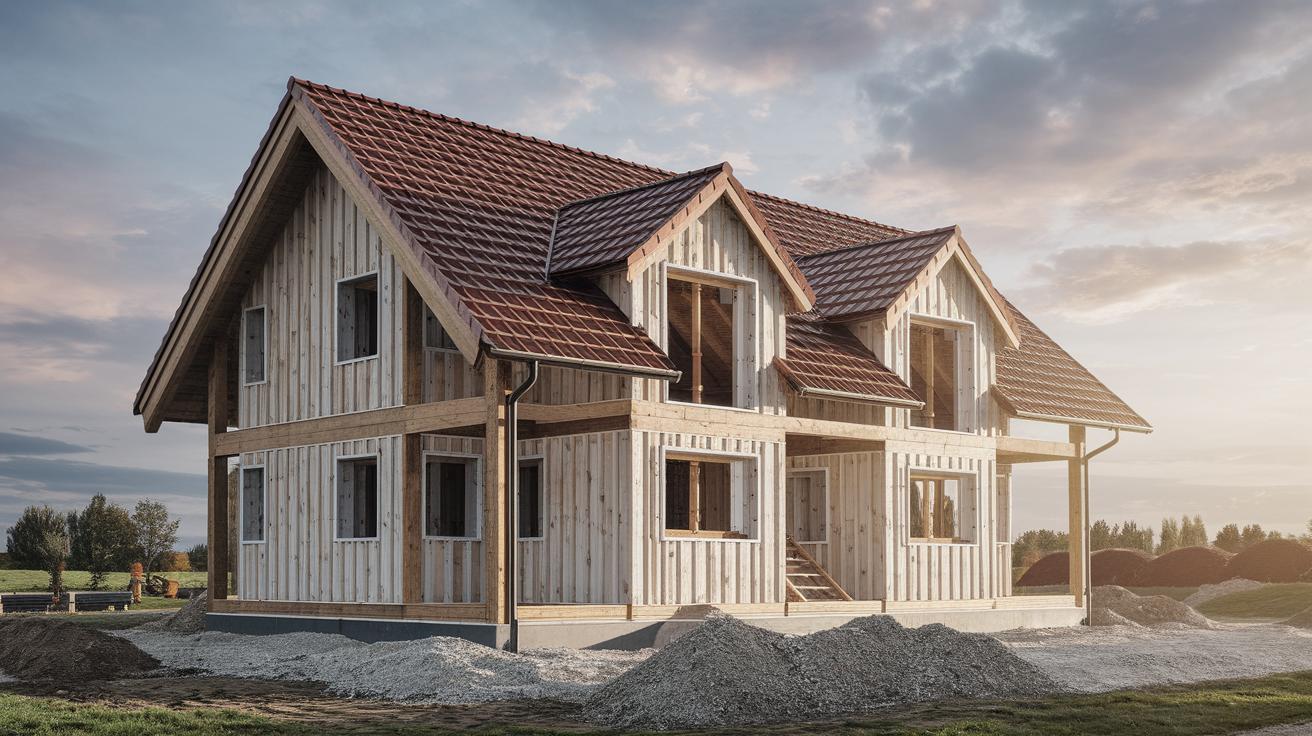How to Obtain Necessary Permits for Construction Projects
Embarking on a construction project is an exciting venture, but it involves navigating through a maze of regulations and permits. This guide provides a comprehensive overview of the necessary permits you need for construction projects, with a focus on various aspects such as building codes, zoning regulations, heritage conservation, and more. Whether you are planning a small renovation or a large-scale development, understanding these permit requirements can save you time, money, and potential legal issues. Explore this guide to gain insights into each step of the permitting process and make informed decisions for your next construction project.
FAQs
New Alberta Building Code
The New Alberta Building Code has recently undergone revisions to ensure safer, more efficient construction practices. These updates include regulations on energy efficiency, sustainability, and advanced building technologies that cater to the specific climate needs of the region.
It’s crucial to stay informed about these changes as they affect a wide range of construction activities. Complying with the latest building code not only ensures the safety of the construction but also prevents possible fines or project delays. Make sure to consult with a building inspector or planning officer to guarantee that your project adheres to the current standards.
Building & Renovating
For those looking to build or renovate, obtaining the correct permits is a fundamental step. This process typically begins with submitting detailed plans for your project to the local planning authority. The plans are reviewed to ensure they meet all structural, fire safety, and zoning requirements.
If your proposed changes align with community guidelines and building codes, you will receive the necessary permits to proceed. However, any significant deviations might require further revisions and resubmissions. Keeping open communication with your local authorities can streamline this process significantly.
Rezoning & Development
Rezoning is sometimes necessary when the current zoning regulations do not permit your intended use for the property. This involves formally requesting a change from the local municipal council.
During this process, you will need to provide substantial evidence that the rezoning will benefit the community and align with future development goals. It may include public hearings where community members can express their opinions. Achieving rezoning approval can open new opportunities but requires careful preparation and presentation.
Subdivision & Land Development
For larger projects, subdivisions, and land development require a distinct set of permits. These ensure that new infrastructures such as roads, sewers, and public amenities are appropriately integrated into the community.
Applicants must submit a detailed land development plan that complies with local laws and environmental standards. The review process may involve several departments, including environmental protection and local engineering teams, to assess the feasibility and impact of the proposed development.
Heritage Conservation
When working on buildings with historical significance, heritage conservation permits are crucial. These permits maintain and protect the architectural integrity of heritage properties.
Applicants must often demonstrate how their project will preserve or enhance the historical value of the site. This may involve using specific materials or construction techniques that align with the building’s original design. It’s a meticulous process that demands respect for tradition and history while enabling modern use.
Zoning
Zoning laws are designed to organize urban growth and ensure the efficient use of land. These regulations dictate how land in certain areas can be used, whether for residential, commercial, industrial purposes, or mixed-use.
Before starting your construction process, ensuring that your project complies with existing zoning regulations is critical. Non-compliance might lead to costly adjustments or even project cancellation. Consult local zoning maps and municipal zoning offices to confirm that your development plans align with existing zoning regulations.
Development Tracker
The development tracker is an invaluable tool for monitoring the progress of construction projects within a particular jurisdiction. It provides updates on permit applications, approvals, and ongoing developmental changes.
Keeping an eye on the development tracker helps stakeholders stay informed about new projects, potential competition, and market trends. It also provides transparency, allowing citizens to be aware of community developments and voice any concerns or support during public consultations.
Official Community Plan
The Official Community Plan (OCP) is a comprehensive framework that guides long-term growth and development in a community. It outlines policies and objectives for land use, transportation, housing, parks, and urban design.
Being familiar with the OCP is essential for successfully acquiring permits, as it influences rezoning and development applications. Aligning your construction project’s vision with the OCP can facilitate smoother negotiations with local authorities and increase the likelihood of approval.
Application Forms, Policies, and Guidelines
Acquiring building permits involves completing various application forms, each with its guidelines and policies. These documents detail the submission requirements, including drawings, specifications, and assessment reports.
Ensure that you follow all instructions meticulously, as incomplete or incorrect applications can result in delays. It’s advisable to have a checklist and consult with professionals to confirm that you provide all the necessary documentation for your particular project.
Development, Building and Permits Monthly Statistics
Monthly statistics on development and building permits provide insight into the local construction landscape. These statistics highlight trends, such as increases in residential or commercial project approvals, and can indicate economic growth or slowdown periods.
By reviewing this data, developers and investors can make informed decisions, anticipate potential challenges, and identify opportunities for new projects. Staying up-to-date with these statistics ensures preparedness for shifts in the construction and real estate markets.
Related Links
To further navigate the complex world of construction permits and regulations, numerous online resources offer assistance. Websites for local municipalities, planning departments, and construction associations provide crucial information and updates.
Using these resources can facilitate a more efficient permit application process. They provide access to detailed maps, forms, and contact information for professionals who can offer guidance. Engaging with these digital tools ensures compliance and accelerates progress toward obtaining the necessary permits.
| Topic | Key Points |
|---|---|
| New Alberta Building Code | Focus on safety and efficiency, compliance necessary to prevent fines. |
| Building & Renovating | Submit detailed plans, open communication with planning authorities ensures smooth process. |
| Rezoning & Development | Requires council approval, benefits must align with community interests. |
| Subdivision & Land Development | Involves multiple departments, compliance with environmental standards essential. |
| Heritage Conservation | Permits required for work on historical properties, preserves architectural integrity. |
| Zoning | Regulations organize land use, non-compliance may affect project feasibility. |
| Development Tracker | Monitors project progress, offers updates on applications and approvals. |
| Official Community Plan | Guides future growth, aligning project’s vision facilitates permit approval. |
| Application Forms, Policies, and Guidelines | Carefully follow submission requirements, complete documentation is crucial. |
| Development, Building and Permits Monthly Statistics | Offers insights into construction trends, useful for decision-making. |
| Related Links | Online resources provide essential information, enhancing permit application process. |


